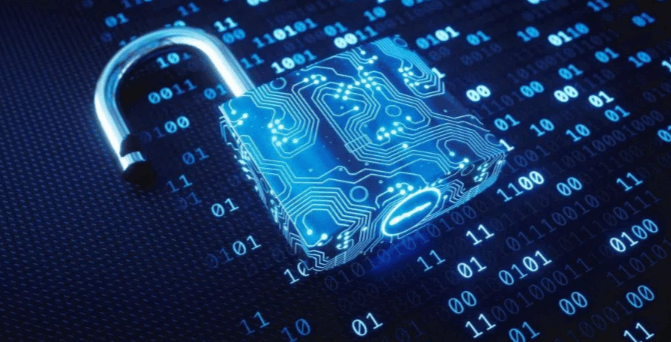What impact will quantum computing have on data security and encryption?

Introduction
Quantum computing is poised to revolutionize many fields, and its impact on data security and encryption is a topic of intense interest and concern. Quantum computers operate on principles fundamentally different from classical computers, enabling them to solve certain problems much more efficiently. This capability poses both opportunities and threats to data security. In this article, we will delve into how quantum computing affects encryption, the potential risks, and the measures being developed to secure data in a quantum future.
Understanding Quantum Computing
Quantum computing leverages the principles of quantum mechanics to perform calculations at speeds unattainable by classical computers. Quantum bits, or qubits, can exist in multiple states simultaneously, thanks to the principles of superposition and entanglement. This allows quantum computers to process vast amounts of data in parallel, potentially solving complex problems much faster than current computers.
Current State of Data Security and Encryption
Traditional encryption methods, such as RSA and ECC, rely on the computational difficulty of factoring large numbers or solving discrete logarithm problems. These methods are secure against classical computers, which would take impractically long times to break such encryption. However, the advent of quantum computers could change this landscape dramatically.
Quantum Computing and the Threat to Encryption
Quantum computers can execute specific algorithms, like Shor’s algorithm, which can efficiently factorize large integers and solve discrete logarithms. This capability means that many of the encryption schemes currently in use could be broken in a matter of seconds by a sufficiently powerful quantum computer. This poses a significant threat to data security across various industries, including finance, healthcare, and national security.
Quantum-Safe Cryptography
In response to the potential threat posed by quantum computing, researchers are developing quantum-safe cryptographic algorithms. These new methods are designed to be secure against both classical and quantum attacks. Some promising approaches include lattice-based cryptography, hash-based cryptography, and code-based cryptography.
Post-Quantum Cryptography Initiatives
Organizations like the National Institute of Standards and Technology (NIST) are leading efforts to standardize post-quantum cryptographic algorithms. These initiatives involve rigorous evaluation and testing of new cryptographic techniques to ensure they can withstand the capabilities of future quantum computers.
Potential Benefits of Quantum Computing for Data Security
While quantum computing poses risks to current encryption methods, it also offers potential benefits for data security. Quantum cryptography, particularly quantum key distribution (QKD), promises unprecedented levels of security. QKD uses the principles of quantum mechanics to ensure that any attempt to eavesdrop on the communication can be detected, providing a fundamentally secure method for exchanging cryptographic keys.
Quantum Key Distribution (QKD)
Quantum Key Distribution enables two parties to generate a shared, secret key, which can be used for encryption and decryption of messages. The security of QKD is based on the laws of quantum mechanics, which ensure that any eavesdropping attempt will inevitably alter the quantum states being measured, thus revealing the presence of an interceptor.
Challenges in Implementing Quantum-Safe Solutions
Transitioning to quantum-safe cryptographic methods presents several challenges. First, there is the issue of compatibility with existing systems and infrastructure. Upgrading global encryption standards will require significant coordination and resources. Additionally, quantum-safe algorithms must be thoroughly tested and vetted to ensure they provide the necessary level of security without introducing new vulnerabilities.
Industry-Specific Impacts of Quantum Computing on Data Security
Different industries will experience the impact of quantum computing on data security in various ways. For example, the financial sector relies heavily on encryption to secure transactions and protect sensitive data. The healthcare industry must safeguard patient information, and governments must protect classified information and national security. Each sector will need tailored solutions to address the unique challenges posed by quantum computing.
Preparing for a Quantum Future
To prepare for the advent of quantum computing, organizations should begin by conducting risk assessments to understand the potential impact on their data security. They should also start implementing quantum-safe cryptographic methods and keep abreast of developments in the field. Collaboration between industry, academia, and government will be crucial in developing and adopting new standards and technologies.
Conclusion
Quantum computing holds great promise for advancing technology, but it also poses significant risks to current data security and encryption methods. The potential for quantum computers to break widely used encryption schemes means that the transition to quantum-safe cryptography is imperative. By investing in research, developing new cryptographic standards, and preparing for the future, we can ensure that data remains secure in the age of quantum computing.
FAQs
What is quantum computing? Quantum computing is a type of computing that uses quantum bits (qubits) to perform calculations at speeds unattainable by classical computers, leveraging principles of quantum mechanics like superposition and entanglement.
How does quantum computing threaten current encryption methods? Quantum computers can efficiently solve problems, such as factoring large integers, that are computationally infeasible for classical computers. This capability threatens encryption methods like RSA and ECC, which rely on the difficulty of these problems.
What is quantum-safe cryptography? Quantum-safe cryptography refers to cryptographic methods that are secure against both classical and quantum computer attacks. These methods are designed to withstand the capabilities of future quantum computers.
What is Quantum Key Distribution (QKD)? Quantum Key Distribution is a method of securely exchanging cryptographic keys using the principles of quantum mechanics. It ensures that any attempt to eavesdrop on the communication will be detected, providing a fundamentally secure way to exchange keys.
What are the challenges in implementing quantum-safe solutions? Challenges include compatibility with existing systems, the need for significant coordination and resources to upgrade global encryption standards, and ensuring that new algorithms are thoroughly tested and vetted.
How can organizations prepare for the impact of quantum computing on data security? Organizations should conduct risk assessments, start implementing quantum-safe cryptographic methods, and stay informed about developments in the field. Collaboration between industry, academia, and government will be crucial.





